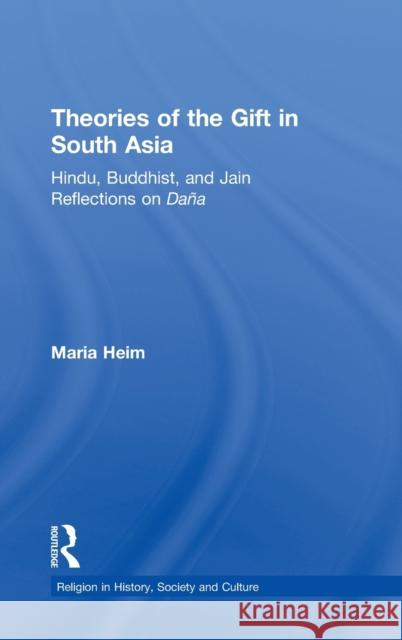Theories of the Gift in South Asia: Hindu, Buddhist, and Jain Reflections on Dana » książka
Theories of the Gift in South Asia: Hindu, Buddhist, and Jain Reflections on Dana
ISBN-13: 9780415970303 / Angielski / Twarda / 2004 / 216 str.
Theories of the Gift in South Asia: Hindu, Buddhist, and Jain Reflections on Dana
ISBN-13: 9780415970303 / Angielski / Twarda / 2004 / 216 str.
(netto: 673,60 VAT: 5%)
Najniższa cena z 30 dni: 654,86
ok. 22 dni roboczych.
Darmowa dostawa!
In South Asia, the period between 1100 and 1300 CE was a particularly prolific time for theorists from India's three main indigenous religions - Hinduism, Buddhism, and Jainism - to articulate their views on the face-to-face gift encounter. Their gift theories shaped a cosmopolitan sensibility that shared ethical and aesthetic values that reached across regional, sectarian, and religious boundaries. This book explores the ethical and social implications of unilateral gifts of esteem, offering a perceptive guide to the uniquely South Asian contributors to theoretical work on the gift. For theorists of the gift in medieval South Asia, the ideal gift was a one-sided gesture, eliciting neither reciprocity nor gratitude from the recipient. This marks an intriguing departure from other theories of the gift, in which underlying reciprocity expresses itself through either another gift, gratitude, or a lingering sense of dependency on the part of the recipient. In contrast, the lack of reciprocity in the South Asian gift configures moral relationships that are asymmetrical and hierarchical, in which the central ethical value expressed is esteem.
This book explores the ethical and social implications of unilateral gifts of esteem, offering a perceptive guide to the uniquely South Asian contributors to theoretical work on the gift.











